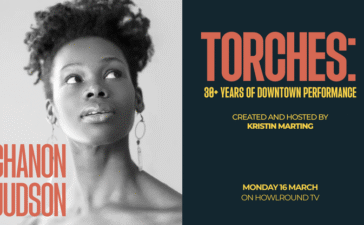Observations on Acting with Stereotypes
In my classroom, I found that my students played with less commitment when stereotypes of a character’s age, gender, intelligence, ability, social caste, race, or sexual orientation were involved, particularly when the students did not have close personal experience or relationship with that aspect of the character. Once a stereotype is permitted into a space, and once it receives laughter and approval, playing other stereotypes becomes fair game. In this way, the classroom can become playful, teasing, leaning towards satire (and commedia is satirical!), but sometimes it reads as insincere and just plain unkind.
Dominant culture in contemporary United States classrooms is, obviously, heavily influenced by the dominant culture of the United States. Dominant cultural qualities are those that are associated with the people who most readily have the majority of power. I observed that often, only some students really find facility and play when embracing stereotyped characters. Usually they are students who possess and present multiple dominant culture qualities. It’s like they already know what works. I want to emphasize that I do not believe these students are simply more talented because they find more success in commedia! Rather, in contrast to those whose unique identities are less culturally powerful in the United States, these students are better equipped to play the dominant cultural character who, in commedia, exerts power over others, because they are already closer to understanding how to wield the dominant cultural power. Students with marginalized identities have much more difficulty using the tools of dominant culture.
The result of this phenomenon in my classroom was that students who already had identities that more fully aligned with the dominant cultural qualities seemed, superficially, to be better actors, and were thus more revered by their classmates for their skills, boosting their confidence at the expense of others and deepening the already existing power gap between students. I’ve watched in disappointment as many of my students of color, disabled students, and nonbinary students left the form excited by the possibility of playing these characters but confused as to why they were not as uplifted by the audience as other students.
Whether commedia is being used in the classroom or at a labor rally protesting ill treatment of a factory’s workers, the form can transform to serve the vision of the ones making it.
Being of Our Time
Commedia dell’arte is not a good or bad theatre form; it is simply of its time. The form can tell stories of liberation or enslavement easily. It all depends on the folks making those choices. Commedia was brought back from the dead by Jacques Lecoq, who used it as a ferocious physical training practice for actors, but the form was also taken up by numerous other practitioners as a means of making social commentary on the inequities of their societies. For folks like Dario Fo and the San Francisco Mime Troupe, commedia’s fixed structures of harm were an avenue to a reclamation for the lower income peoples of the world, creating biting satire and social commentary by using the form to push back at the wealthy corporate leaders and ineffective arms of the state. Whether commedia is being used in the classroom or at a labor rally protesting ill treatment of a factory’s workers, the form can transform to serve the vision of the ones making it. When I lead workshops and ask people what they love about commedia and why they want to keep using the form, they often speak of the potential to speak truth to power.
I didn’t go looking for reasons to remake commedia, the reasons were already in me and my own experiences. They kept showing up in my class and lingered in my head, heart, and body.
I want to use commedia to tell stories of our time that are grounded in joy, justice, and liberation, and I believe that by making our creative educational and performance spaces safer for our many diverse identities, our culture’s storytelling will expand and cultivate the empathy needed to solve large societal problems.
You Might Also Like
The Tempest Crashes Ashore at Point Montara
By Nicole Gluckstern. Berkeley Shakespeare Company’s site-responsive The Tempest took over the Point Montara Lighthouse Youth Hostel. Source link...
A Conversation with Chanon Judson
By Kristin Marting. On 16 March 2026, TORCHES will continue with a conversation with critically acclaimed choreographer and performer Chanon...
Prison Shows
By Jan Cohen-Cruz. In this episode, shows develop in the various workshops. The impact of making, performing, and being seen...
A Conversation with Talking Band
By Kristin Marting. On 23 February, TORCHES will continue with a conversation with the prolific Ellen Maddow and Paul Zimet....










